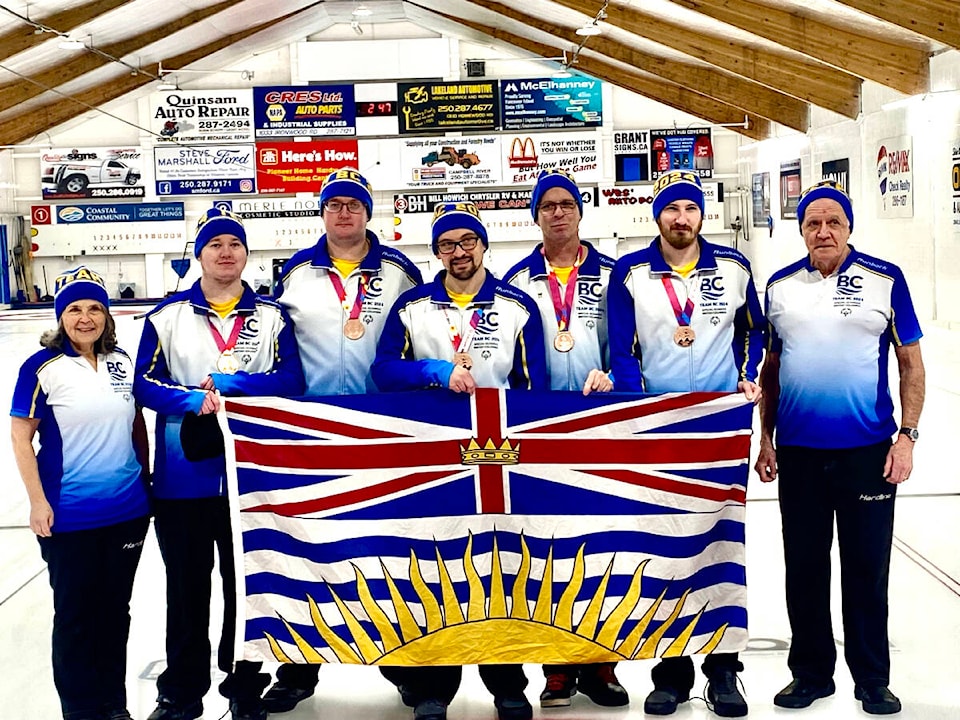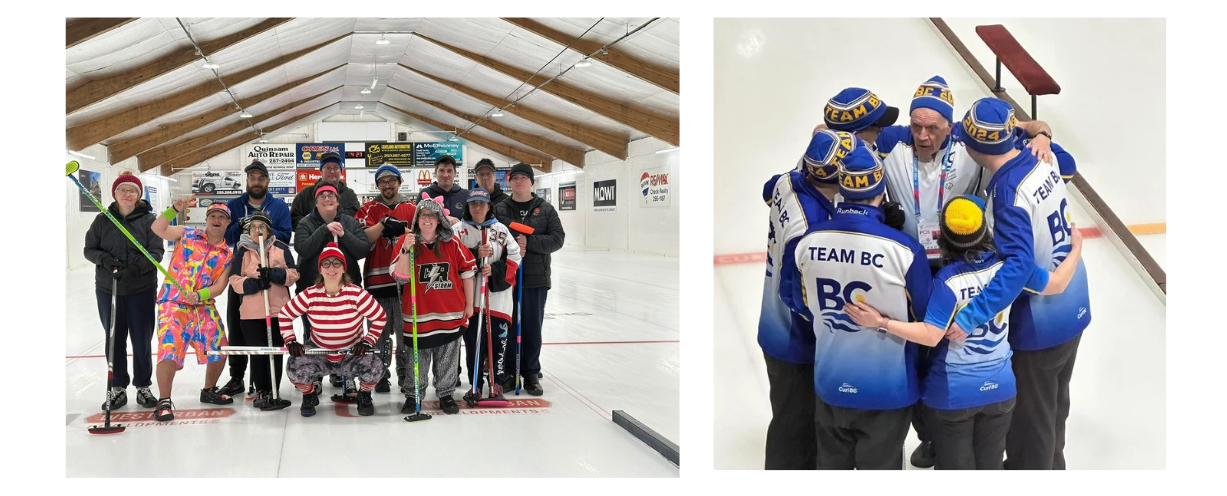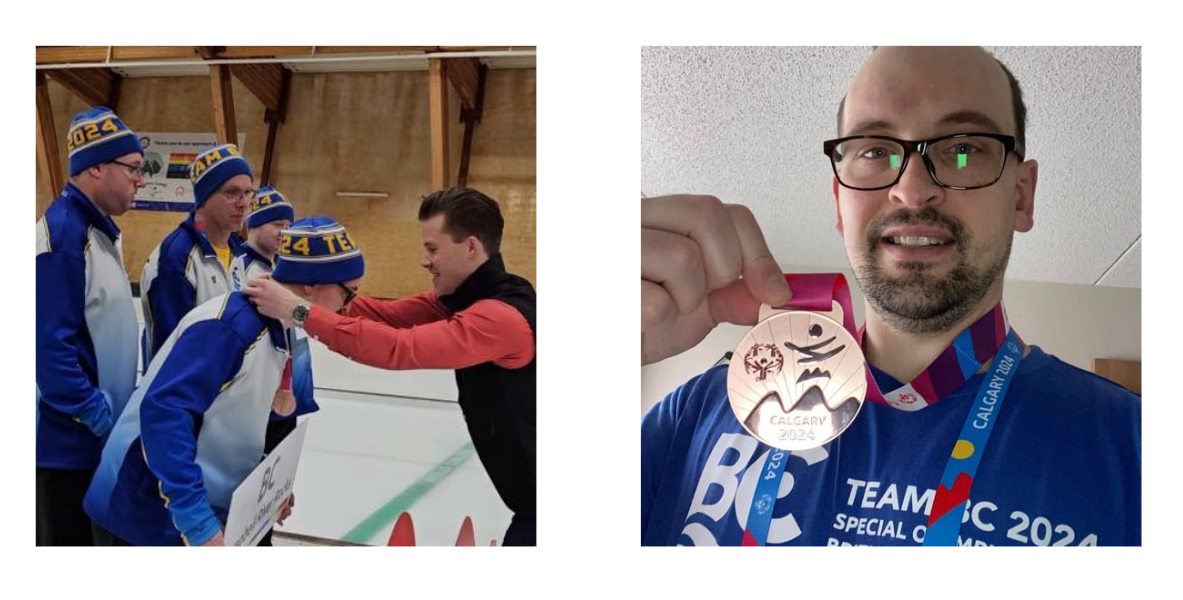Matthew Basso had a stroke. Then he won Bronze at Nationals.

Injuries are probably one of the biggest fear any physically active person has, especially those who are competing in sports. Ranging from knee sprains, broken bones, or heart attacks, there are lot of painful conditions which not only keep us from succeeding, but also just living life.
Special Olympics was founded on the idea that active participation in sport can help people with intellectual and developmental disabilities to gain skills, fitness and the confidence to overcome challenges in sport and in life,, as well as change the attitudes and stigmas that people with disabilities often face. But it can also help people surpass other hurdles that life tends to throw at us, such as a debilitating stroke.
While on track to attend the Special Olympics British Columbia Provincial Winter Games with his curling team, Special Olympics athlete Matthew Basso suffered from a left-brain ischemic stroke. As Matthew explained, a blood clot in his brain caused him to lose control over the entire right half of his body, as well as his ability to speak.
“It was scary for a lot of my family,” Matthew said, “my Special Olympics friends, and my girlfriend.”
In Campbell River, Special Olympics curlers practice their sport at least twice a week. The first is on Thursdays, which is a day specifically set aside for the Special Olympics team to gather as a community of athletes with intellectual and/or developmental disabilities and their coaches. The second time is on Sundays, when those same participants in Special Olympics join the town’s Sunday Social League, open to everyone in the town.
Coach Terry Kratzmann said the curlers without disabilities in this league are are incredibly welcoming to his athletes. When the team returned from the Special Olympics Canada Winter Games in Calgary, they were surprised with a celebration—completely unprompted by any of the Special Olympics coaches. He highlighted this as a perfect example of how sport can foster inclusion, furthering the original vision of Special Olympics pioneer Dr. Frank Hayden: to empower individuals with intellectual and developmental disabilities, not only through physical fitness but by creating meaningful connections within their communities.

“In the eight years since I’ve been coaching the Special Olympics team,” Terry said, “we’ve gone from a coach skipping for the team and throwing their fourth rocks, to nobody being on the ice with the curlers at all.”
He added that the Sunday Social League has two divisions, and Matthew is in the more competitive one.
If it were not clear enough already, both the Campbell River’s Special Olympics team and its curling rink make up more than a sports venue, but a community. Matthew met his girlfriend through a mutual friend and the two participate in a lot of the same sports in Special Olympics, including curling.
While recovering from the stroke, Matthew took a couple weeks to regain his speech. He recalled having to speak slowly and clearly, until eventually people were finally able to understand the sounds that were coming out of his mouth. As if that wasn’t enough, he also had to relearn how to walk.
“I had to get help from my girlfriend around the house,” Matthew said. “She helped me around. When I was in the hospital for physiotherapy sessions, I did a lot of walking around the circle in the upstairs where I was.”
While Matthew’s plans for going to the Provincials were thrown off course, the recovery ended up changing—and even improving—his curling technique. Matthew typically uses a sliding delivery, with his right hand placed directly on the rock itself. Without the use of his right hand (along with the rest of his dominant half), Matthew started learning to stick curl with his left hand. When Matthew was finally cleared to compete in Provincials, this was the technique he used. Their team went on to compete in the highest division.
“That was a little bit interesting for me,” said Matthew, “but other than that, Terry did a bunch to help me through that. For the team.”

By the time they went on to Nationals, Matthew was able to use his preferred right hand sliding delivery, along with most of his original functionality. While many teams would consider medalling at the National Games to be an awesome climax of their sports journey, for the Campbell River curlers, it was a segue to the next episode.
The Campbell River team was then selected to be part of another tournament hosted by Special Olympics Yukon, competing against a team that they had previously defeated in the bronze medal round of the Special Olympics Canada Winter Games Calgary. This included a free trip to Whitehorse, some free swag, and a lot of intense curling. As Terry explained, this was Special Olympics Yukon’s second invitation-only tournament.
“They wanted a little revenge on us,” Terry recalled fondly, “so they invited us and two other top teams from the National Games: Melfort, Saskatechewan and Middleton, Ontario.”
Terry went on to say they had an excellent competition that, “came down to the final rocks,” with his team unfortunately placing last. However, Terry praised Special Olympics Yukon’s team hospitality, as well as the sportsmanship and fierce competition all four teams were able to put on.
Regarding the trip to Whitehorse, Yukon, Matthew said he found the -25 degree weather and -38 windchill a little too cold for his liking, but everyone on the team including himself had a great time.
“One of my other teammates,” he chuckled, “in his opinion he found it a little warm, he didn’t have his jacket zipped up or anything. He was like ‘this is nothing’ and I was like ‘brrr’!”
“Other than that, it was a good trip though.”
Matthew’s journey shows just how powerful sport can be—not just in building confidence and inclusion, but in helping people push through life’s toughest challenges. Special Olympics didn’t just give him a place to compete; it gave him a community that supported him through recovery, a sense of purpose, and the physical strength that played a key role in regaining his abilities. For athletes like Matthew, Special Olympics is more than just a game—it’s a support system, a source of resilience, and sometimes, even a lifeline.
